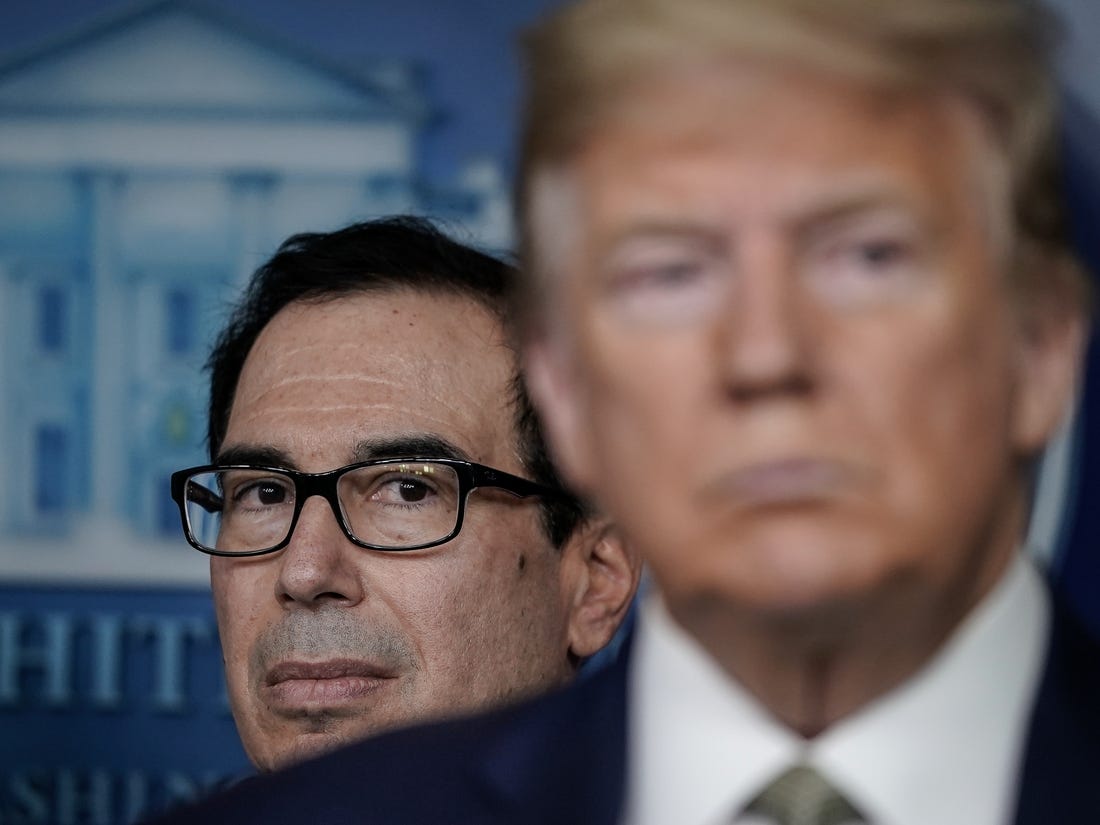US threatens “decoupling” from China if American firms cannot compete fairly

A few minutes every morning is all you need.
Stay up to date on the world's Headlines and Human Stories. It's fun, it's factual, it's fluff-free.
On Tuesday, United States Treasury Secretary Steven Mnuchin said that there could be a “decoupling” between the US and Chinese economies if US companies could not participate and compete in the Chinese economy on a “fair and level playing field.”
“If we can compete with China on a fair and level playing field, it is a great opportunity for US businesses and US workers, as China has a large, growing middle class,” he said at a virtual Bloomberg Invest Global forum event.
“But if we can’t participate and compete on a fair basis, then you are going to see a decoupling going forward.”
Mnuchin also mentioned that he had “every expectation” that both sides would live up to their original obligations under the phase one trade deal, which would see China buying US$200 billion worth of US goods over the next two years.
Addressing concerns about growing US-China tensions following US criticism of Beijing’s handling of the coronavirus pandemic, he stressed that “we shouldn’t confuse these two issues.”
Mnuchin’s comments come shortly after White House trade adviser Peter Navarro made conflicting statements about the trade deal on behalf of the Trump administration.
In an interview with Fox News on Monday, Navarro said that the trade deal with China was “over” due to Washington’s frustration with Beijing’s lack of transparency in their initial response to the pandemic which has claimed the lives of over 123,000 Americans.
“It was at a time when they had already sent hundreds of thousands of people to this country to spread that virus, and it was just minutes after wheels up when that plane took off that we began to hear about this pandemic,” said Navarro.
Navarro also seemed to suggest that the US signed the trade deal with China on January 15 before the virus began to spread, and that new circumstances could affect the deal.
These frustrations appeared to be shared by President Donald Trump himself who tweeted on Thursday, “ … the US certainly does maintain a policy option, under various conditions, of a complete decoupling from China.”
After Navarro’s remarks were publicized, the US stock futures experienced a huge drop as people started to fear that the trade deal was again in jeopardy. Contracts on the S&P 500 Index fell as much as 1.6% before paring losses. The offshore yuan also weakened 0.4% shortly after.
Later that night, Navarro revoked his claims saying that his comments “have been taken wildly out of context.”
“I was simply speaking to the lack of trust we now have of the Chinese Communist Party after they lied about the origins of the China virus and foisted a pandemic upon the world,” he said in his statement.
Trump also walked back his statements from last week, tweeting on Monday that “The China Trade Deal is fully intact. Hopefully they will continue to live up to the terms of the Agreement!”
This chain of events comes shortly after a meeting between US Secretary of State Mike Pompeo and Chinese diplomat Yang Jiechi in Hawaii last Wednesday. According to Pompeo, Yang had “recommitted to completing and honoring all of the obligations of Phase 1 of the trade deal between our two countries.”
Chinese officials have previously dismissed Navarro’s statements on several occasions, calling him a “habitual liar.” In response to Navarro’s Fox News interview, Foreign Ministry spokesman Zhao Lijian said “[Navarro’s remarks] are just groundless and absurd. He’s always full of lies and has zero credibility.”
Despite the variety of remarks from US officials about the potential decoupling from China, the reality of the trade relationships between the US and China appears to be extremely intertwined, making decoupling very difficult. Furthermore, US-China trade is currently on an upward trajectory after major drops earlier this year after the coronavirus outbreak.
According to US Census Bureau data, US exports to China rose to US$8.6 billion in April, up from a 10-year monthly trough of US$6.8 billion in February. Imports from China have also increased to US$31.1 billion from US$19.8 billion in March, which marked the lowest monthly total in 11 years.
In reference to the trade deal on June 23, Pompeo also admitted that “the challenges of American economic growth and prosperity are deeply intertwined today with the Chinese economy.”
Many economists have expressed concerns over the impact that the US-China relationship will have on the market especially as the US approaches the November presidential elections.
“We had expected US-China tensions to escalate in the second half of this year in the run-up to the US election,” said Vasu Menon speaking to Reuters, senior investment strategist at OCBC Bank Wealth Management in Singapore.
“China hawks … like Navarro could gain the upper hand and egg [Trump] on to take action against China. So expect markets to be very bumpy in the second half of this year because of the double whammy from Covid-19 and US-China tensions.”
Have a tip or story? Get in touch with our reporters at tips@themilsource.com




Comments ()